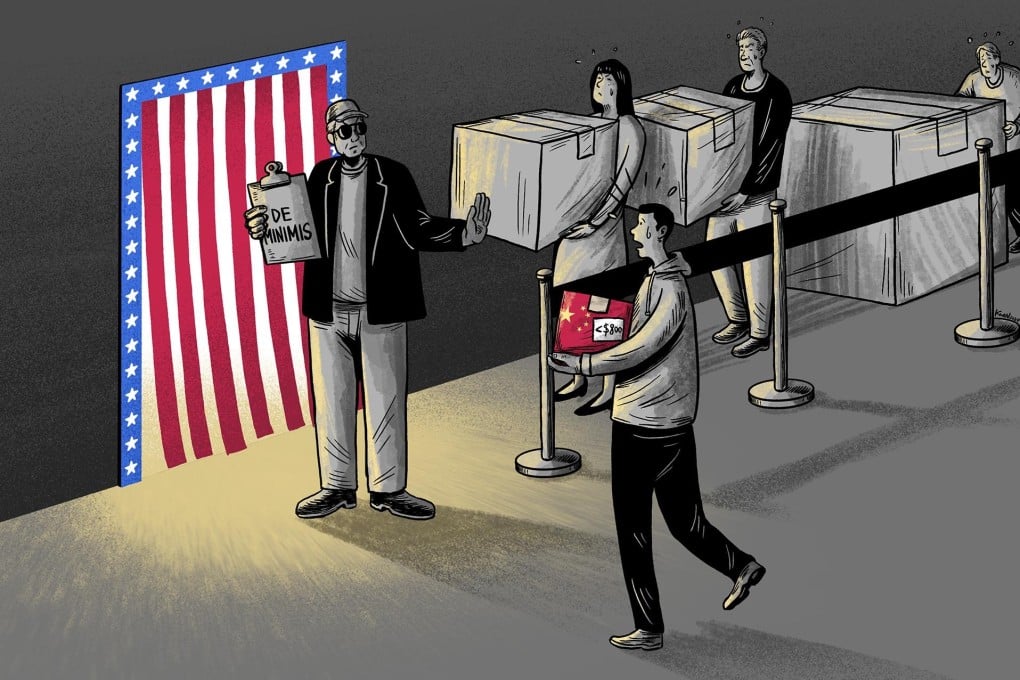Advertisement
Why China hopes the US won’t touch a century-old trade rule affecting imports under US$800
- E-commerce giants Shein and Temu flourish as parcels surpass quarter of a trillion dollars in value annually amid push to tighten de minimis provision
- US lawmakers argue Chinese goods produced from forced labour are being allowed into the states, but election year factors cast doubt on reform
Reading Time:7 minutes
Why you can trust SCMP
64

Ji Siqiin Washington
Like many entrepreneurs handling exports in the business powerhouse that is China’s Guangdong province, Victor Wang’s freight company has leapt into cross-border e-commerce.
Transitioning away from placing large containers of bulk cargo on overseas-bound ships, Wang over the past year has embraced a sea change in volume and scale that has proved lucrative.
Now, Wang sends small parcels – usually containing a jacket, two pairs of earrings or a rice bucket – via air directly from local factories to shoppers in the United States.
The company’s dramatic shift seemed inevitable: its customer base comprising hundreds of thousands of manufacturing factories in the region had already been flocking to e-commerce.
It strives to fill a void created by dwindling wholesale orders from foreign retailers, especially Americans, resulting from punitive tariffs imposed by former US president Donald Trump.
Then came efforts by Joe Biden, Trump’s successor, to get US companies to relocate their supply chains outside China.
Advertisement